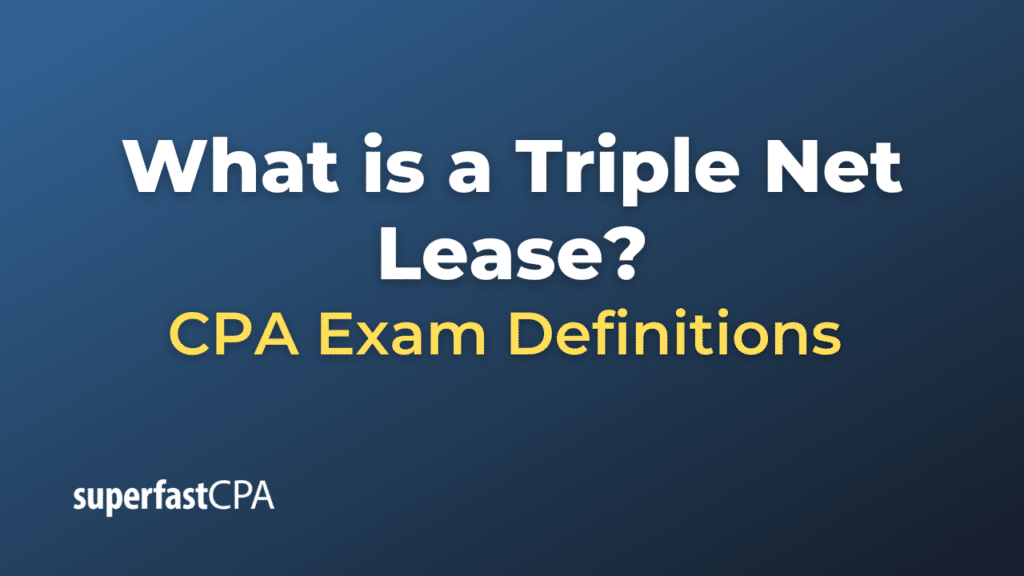Triple Net Lease
A Triple Net Lease (often abbreviated as NNN Lease) is a type of commercial lease agreement where the tenant is responsible for paying not only the base rent but also the property’s operating expenses. These expenses traditionally fall into three categories, which give the lease its “triple net” name:
- Net Real Estate Taxes: The tenant is responsible for paying the property taxes on the leased asset.
- Net Building Insurance: The tenant must cover the costs of insuring the building or space they’re renting.
- Net Common Area Maintenance (CAM) Fees: This includes the cost of maintaining common areas, such as elevators, hallways, parking lots, and shared bathrooms. CAM fees might also cover expenses like snow removal, janitorial services, and landscaping.
The primary benefit of a triple net lease for landlords is that it largely insulates them from variable costs associated with property ownership. This can make NNN leases particularly attractive to real estate investors who want a more predictable income stream.
However, for tenants, while the base rental rate under a triple net lease might be lower than other types of leases, they assume more financial variability and risk. They need to budget for and manage these additional costs, which might fluctuate over time.
When considering a triple net lease, both parties should thoroughly review and understand all terms and potential financial obligations. It’s crucial to clarify who is responsible for what, especially when it comes to major repairs or replacements, to avoid disputes later on.
Example of a Triple Net Lease
Let’s consider a hypothetical example to illustrate how a Triple Net Lease (NNN Lease) might work:
Scenario:
Imagine a real estate investor, Mr. Smith, who owns a standalone commercial building in a bustling commercial district. He’s approached by a national pharmacy chain, MedStore, which is interested in leasing the building for one of its outlets.
After negotiations, they agree on a Triple Net Lease.
Terms of the Lease:
- Base Rent: MedStore will pay $10,000 per month as the base rent to Mr. Smith.
- Net Real Estate Taxes: The annual property taxes for the building amount to $12,000. MedStore agrees to pay this full amount, which averages to an additional $1,000 per month.
- Net Building Insurance: The building’s annual insurance premium is $6,000. This averages to an extra $500 per month that MedStore will cover.
- Net Common Area Maintenance (CAM) Fees: Although the building is standalone, it has a parking lot and outdoor lighting. The monthly cost to maintain these common areas is estimated to be $400.
Considering all the expenses, MedStore’s monthly payment under the Triple Net Lease is:
- Base Rent: $10,000
- Real Estate Taxes: $1,000
- Building Insurance: $500
- CAM Fees: $400
- Total Monthly Payment: $11,900
Benefits for Mr. Smith:
He receives a steady income of $10,000 per month without worrying about the variable costs of property taxes, insurance, and maintenance. His returns are predictable, and he’s insulated from any potential increases in those costs.
Considerations for MedStore:
While they might have negotiated a favorable base rent, they need to budget for the additional costs. If property taxes rise or if there’s a significant maintenance event (like repaving the parking lot), MedStore bears that cost. They need to manage these expenses efficiently and be prepared for any fluctuations.
This example highlights the financial structure of a Triple Net Lease. Both parties should be clear about responsibilities, especially for significant repairs or capital expenditures, before entering such an agreement.













